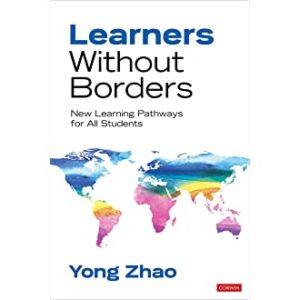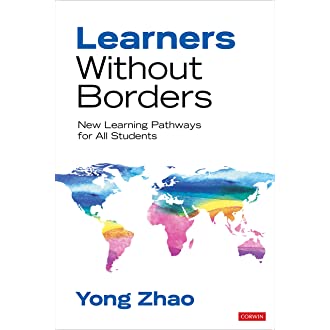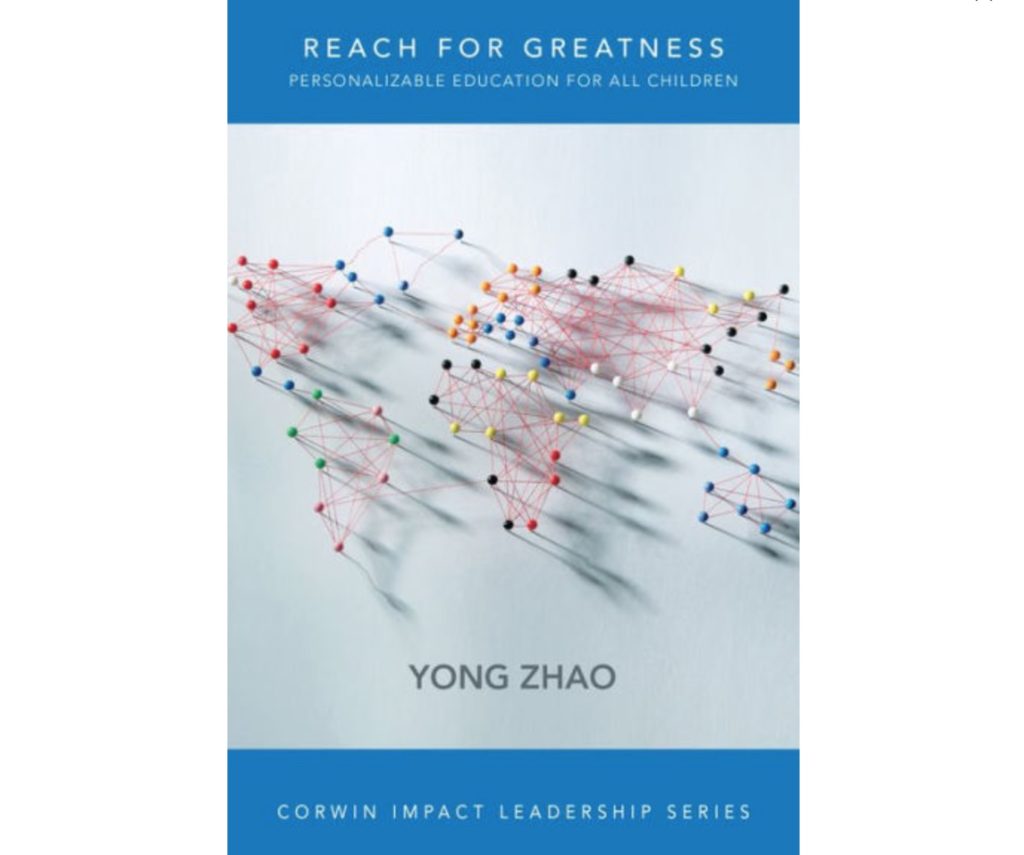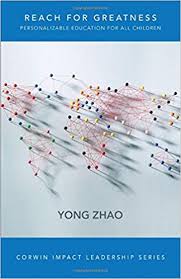 In Learning Without Borders: New Learning Pathways for all Students, Yong Zhao outlines an ongoing and necessary paradigm shift in education, offering new ways of thinking and examples from the frontier of this trend. This is a timely piece that highlights the changes that were forced upon us by the pandemic but have been in the works for a long time. The pandemic exacerbated existing cracks in the system but also spotlighted new opportunities. The old boundaries and structures of education need to be transformed if we truly want to create pathways for the success of all students.
In Learning Without Borders: New Learning Pathways for all Students, Yong Zhao outlines an ongoing and necessary paradigm shift in education, offering new ways of thinking and examples from the frontier of this trend. This is a timely piece that highlights the changes that were forced upon us by the pandemic but have been in the works for a long time. The pandemic exacerbated existing cracks in the system but also spotlighted new opportunities. The old boundaries and structures of education need to be transformed if we truly want to create pathways for the success of all students.
This book asks us to fundamentally reorganize our thinking about school and to make it genuinely student-centered. Putting the student at the center of education is a relatively common idea in education, but Yong gives a contemporary angle enabling the reader to systematically build an understanding of emerging roles teachers and students will play in this new education. His book challenges the way we think about pedagogy by integrating discussions of learning pathways, curriculum design, self-directed learning, and existing technology.
At the core of the discussion is an education system that is built around student needs that are determined in partnership with students. But before we can challenge the practices of the system, flawed mindsets are challenged: schools do not prepare students for life — students are already living full lives full of formative experiences, and schools do not transmit knowledge to students — students have unprecedented access to knowledge and are learning all the time without direct instruction.
Along with a changing mindset comes a need for an evaluation of the paths we offer, schools do much more than prepare students for college. Schooling should dynamically align with the individual student pathways, not group students onto the same path. The current structured form of education focuses on curriculum design without students; to support student development, students need to be co-owners of curriculum design. The curriculum should support the students in following their passions and endeavors not in satisfying a list of government determined metrics. Learning needs to be meaningful and Yong helps us ask the right questions to direct our practice.
These changes are not only theoretical but are ready to implement now more than ever before. They are scaffolded by ripening technology that has enabled students to truly take the reins. This has led some to fear a replacement of teachers, but the challenge in education he [proposes is not how technology might replace teachers, but to understand what aspects of learning will be done through technology and what aspects have to be done directly by teachers. He helps the reader find their role in this shift by asking us to question our widely held beliefs and adopt new roles. Students have taken charge of their own learning and we as educators need to gain comfort and facility in acting as life coaches, resource curators, community leaders, and project managers. The challenge is to find the new emerging roles for teachers and students in this new educational ecology.
While Yong critiques ways of thinking he also challenges established and accepted norms. We have new types of students who are often enabled by technology engaging the world in new innovative ways. We are completely ignoring the student entrepreneur in our education approaches, for example. We send these students the message that school does not fit them rather than integrating their skills into the system. In another example, he points out structural flaws in student groupings. We currently ignore basic principles of development by grouping students by age not developmental level or passions. And while the classroom has been seen as a fundamental unit within a school, the new classrooms can span the globe. The book is filled with ideas that help us consider the development of current systems.
One may initially think such a book is only for the progressive school and the changes discussed are above the level of the teacher. However, the attentive reader will notice suggestions for small and large changes that teachers can make in their practice. It is not always about creating a new way, it is often about accepting and becoming aware of the ways that are already practiced in the world around us. Educators can use the principles outlined here to empower students, design classrooms, and engage in ways of practicing education that can affect change.
The crux of this argument is that the system is not addressing student needs and radical redesign is necessary to align with systems of learning that are already taking place. This book helps the reader see and become part of a new education without borders.





